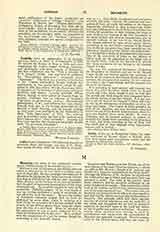

Lossada, Luis de, philosopher, b. at Quiroga, Asturias, Spain, in 1681; d. at Salamanca, in 1748. He entered the Society of Jesus in 1698, and, after completing his studies, taught theology, Scripture, and philosophy with great success at Salamanca. His first publication was the “Vida y virtudes del P.G. Dutari” (1720). One year later he published his “Institutiones dialecticae”, commonly styled “Summulie”. This book was a worthy introduction to his “Cursus philosophici Regalis Collegii Salmanticensis, in tres partes divisus”, which he published in 1724 (last edition, 10 vols., Barcelona, 1883). It discusses all the branches of philosophy with great erudition and clarity. Lossada generally follows Suarez, though in some points he departs from his master. Urraburu was an admirer of Lossada’s “egregium et gravissimum cursum” (Institutiones philosophic, I, 87), and followed him very closely. Lossada took part in the famous discussion on the descent of Saint Dominic, and his learned writings on this point were published by the Bollandists in their “Acta Sanctorum” of 1755. The satirical vein in Lossada’s works led him to be credited with Isla’s famous novel “Fray Gerundio”. Lossada and Isla wrote together the curious and amusingly absurd work “La juventiid triunfante”.
WILLIAM FURLONG

